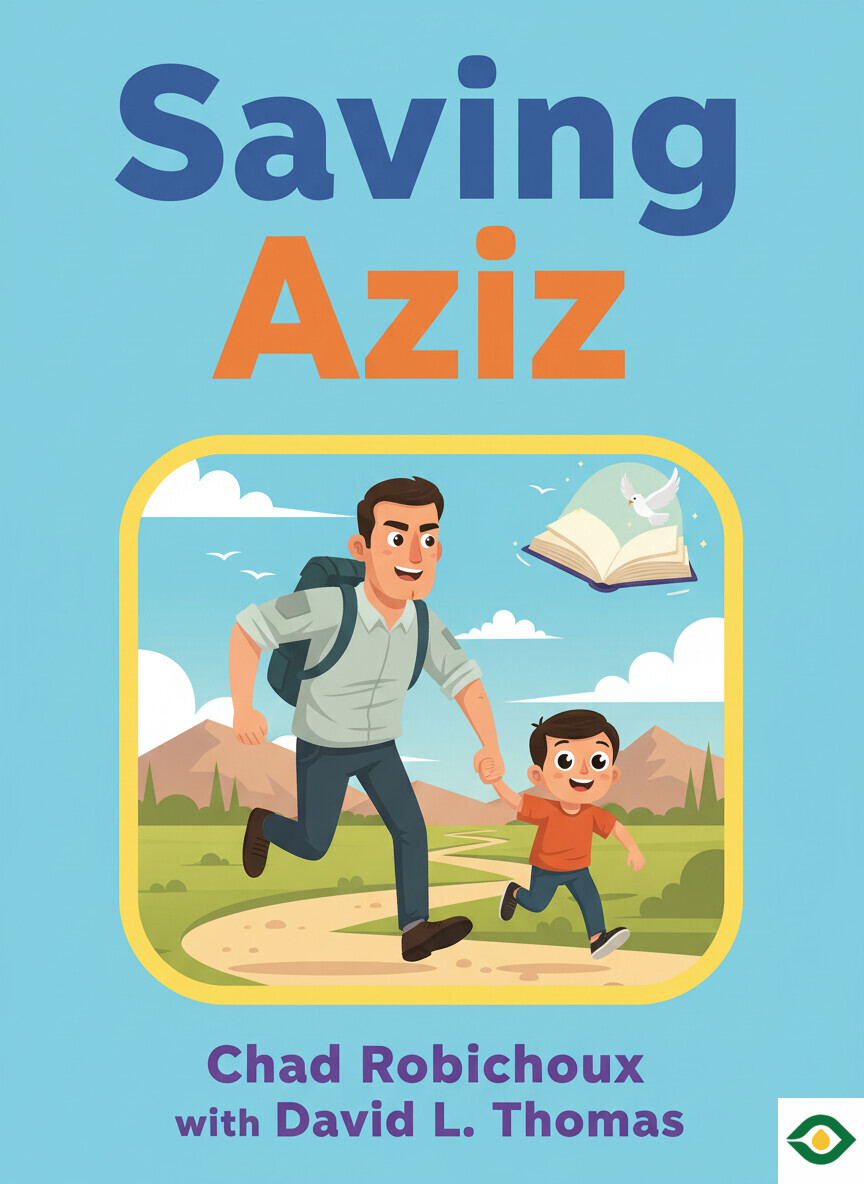Description
This is the story of a friendship that became a lifeline. An American Marine named Chad Robichaux served in Afghanistan with a young interpreter named Aziz. They worked side by side on dangerous missions, and a bond formed that felt like family. Aziz’s children called Chad “uncle.” Over years of operations, they learned to trust each other with their lives. That trust, tested by war and loss, would later become the engine of a rescue effort that saved thousands.
One memory explains why the stakes were so high. Aziz once walked Chad to an abandoned building with an empty pool. Bullet holes dotted the concrete at the height of a person kneeling. Another line of holes sat lower, at the height of a child. This was an execution site. For Aziz, this was what the return of the Taliban meant: the end of fragile freedoms and the return of fear. For Chad, the pool made the cost of failure real. From then on, every mission carried the faces of families like Aziz’s.
Aziz was far more than a translator. He had a sharp instinct for danger and a calm courage in chaos. When a blast tore through a wall near their office and trapped a colleague, Aziz ran with Chad into the smoke and gunfire to pull the man out. On another day, when a weapons deal smelled wrong, Aziz insisted they bring more men and set careful lookouts. His call likely prevented an ambush. Again and again, he put himself in harm’s way for the team. Those choices built a debt of honor that Chad never forgot.
War also pushed Chad past his limits. After learning that a group of his allies had been captured and most killed, he kept working in Afghanistan and was himself detained and interrogated for hours. He rarely speaks about those moments. Later, his house in-country was destroyed. The trauma followed him home. He wrestled with post-traumatic stress, struggled in civilian life, and even saw his marriage begin to fall apart. Step by step, he rebuilt. He found faith. He turned toward service, launching the Mighty Oaks Foundation to help veterans heal and return to life with purpose.
Then came April 2021. The United States announced it would withdraw from Afghanistan. The clock started for Aziz, who had been waiting for a Special Immigrant Visa because of his service to U.S. forces. Paperwork moved slowly while danger moved fast. At first, Chad set out simply to get Aziz and his family to safety. He raised money, built a small plan, and prepared to go. But the deadline moved up. Crowds grew at Kabul’s airport. Taliban checkpoints tightened. Marines struggled to hold perimeters while thousands of terrified people begged to get through.
In that chaos, a single-family rescue felt too small. Chad and a group of partners decided to scale. They created a network that would later be known for shuttling busloads of at-risk people from city streets to flight lines. Their focus was narrow and urgent: American citizens and Afghan allies who had lawful paths to the United States. They built lists, secured buses, found safe routes, coordinated with soldiers at gates, and arranged temporary shelter abroad. They did it under pressure, with little time, and with the knowledge that a single mistake could be fatal.
One nation, the United Arab Emirates, offered a crucial base. There, apartments became temporary homes for those pulled from the crowds. The work at the airport was heartbreaking and unpredictable. On one mission, a bus full of vetted evacuees was turned back by a gate guard who demanded different paperwork, scattering families back toward Taliban checkpoints. Many never returned. On other days, the buses rolled through, and a thousand people were lifted out in a single day. In that surge of operations, Aziz and his family were finally moved to safety.
The reunion between Chad and Aziz happened in those UAE apartments. It was emotional and simple at once—children shouting “Uncle Chad,” a family opening its door, and two friends picking up where they left off. The camp itself needed order. Lines formed. Families were split. Paper moved slower than people. Aziz, restless and practical, switched from rescued to rescuer. He organized rooms, streamlined check-ins, and helped reunite loved ones. The same instincts that once saved lives on missions now eased the strain of displacement.
Tragedy struck outside the airport when a blast killed thirteen American service members and hundreds of civilians. Operations slowed but did not stop. As the formal withdrawal ended, the work changed shape. Instead of buses to open gates, rescues became quieter and more complex. Teams planned covert movements and moved families one by one across borders. Some stories will never be told publicly. Others surfaced later: flying a national women’s soccer team to safety, relocating mixed martial artists at risk, and chartering a flight that brought dozens of American citizens directly to New York.
The effort reached beyond the first flights. It was not only about escape but also about beginning again. The network raised funds for housing, helped people navigate schools and jobs, and supported mental health care for those who had seen too much. The mission was not a headline that faded with the news cycle. It continued into the following years, adapting to new routes, new rules, and new dangers. The number that mattered grew: tens of thousands of lives moved out of harm’s way.
At the center of it all remained a simple human promise. Chad remembered a friend who had saved his life more than once. Aziz remembered a partner who respected him as an equal. Their bond cut through bureaucracy and fear. It became a bridge for strangers—mothers and fathers, daughters and sons—who would never know either man personally but would feel the results in the ordinary safety of a quiet night’s sleep.
This story is not polished. It is messy, improvised, and full of close calls. Some buses made it. Some did not. Some gates opened. Others stayed shut. There were arguments at checkpoints, frantic phone calls, and lists that changed by the minute. But beneath the noise ran courage and stubborn compassion. Volunteers stayed up for days. Donors wired funds on faith. Soldiers on the line bent rules just enough to save a life. Local drivers risked their families to move strangers through alleys and side streets. Each small act joined to form something larger.
Aziz’s role reminds us where heroism often starts: in noticing what is needed and stepping forward without being asked. He did that on raids and in offices, and later in apartment blocks full of displaced families. Chad’s part shows how duty can outlive a uniform. He could have stayed home and wished his friend luck. He chose instead to go back into the tangle and pull others through. Their choices didn’t fix a war. They did something smaller and, for the people on those buses, far more important—they gave a future.
By the end, the rescue numbers reached the tens of thousands, including American citizens and Afghan allies who had served shoulder to shoulder with U.S. forces. The work stretched across borders and even continued while other conflicts raged far away. The headline might sound grand, but the heart of the story is intimate. It is a Marine keeping a promise to an interpreter. It is a father determined to protect his children. It is a hand held out in the dark, and another hand taking it.
Friendship may seem like a soft word in the hard world of geopolitics. Here, it was steel. It carried people across airport gates and desert roads. It turned a single household rescue into a movement. It proved that even when governments move slowly and events spin out of control, ordinary people can still act with speed, clarity, and heart. That is the lesson worth keeping: one loyal relationship can spark a chain of help wide enough to change thousands of lives.





